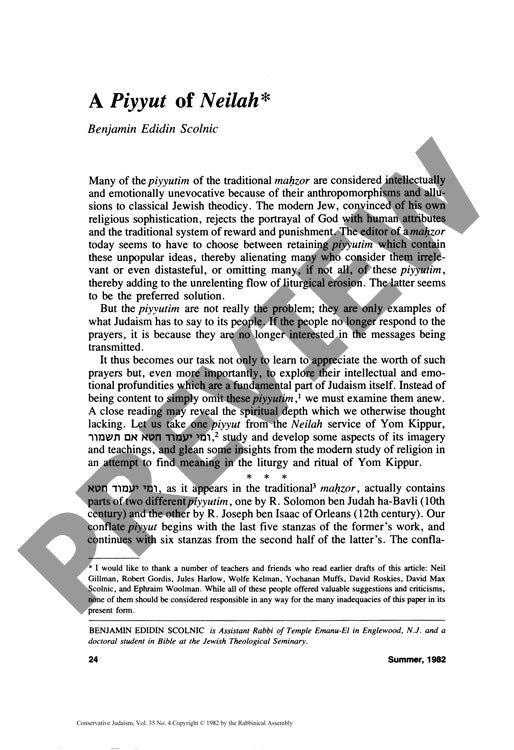A Piyyut of Neilah
Couldn't load pickup availability
An ancient Jewish prayer poem for Yom Kippur's closing Neilah service reveals profound insights into divine-human relationships that remain relevant for contemporary spiritual practice. The conflated piyyut "ומי יעמוד חסא," incorporating works from R. Solomon ben Judah ha-Bavli (10th century) and R. Joseph ben Isaac of Orleans (12th century), offers a sophisticated model of cyclical spiritual transformation often overlooked by modern worshippers. Through close textual analysis informed by religious studies, anthropology, and psychology, the prayer's seemingly problematic anthropomorphisms emerge as powerful psychological tools rather than literal theology. Drawing on Yochanan Muffs' work on anthropomorphism and Mary Douglas and Jonathan Z. Smith's theories of ritual, the analysis reveals how the "turning of faces" between God and Israel maps stages of sin, punishment, repentance, and redemption onto prophetic literature. Yom Kippur functions as a ritual of "incongruency," creating meaningful tension between idealized moral order and lived reality. Rather than omitting these challenging liturgical texts, modern Judaism can find renewed meaning in traditional piyyutim when understood as expressions of spiritual aspiration rather than magical efficacy. The Neilah service, in particular, creates intense moments of divine-human encounter precisely through maintaining conscious tension between ideal and reality.

More Information
-
Physical Description
-
Publication Information
Published 1982
ISBN
-
Publication Credits
Benjamin Scolnic

